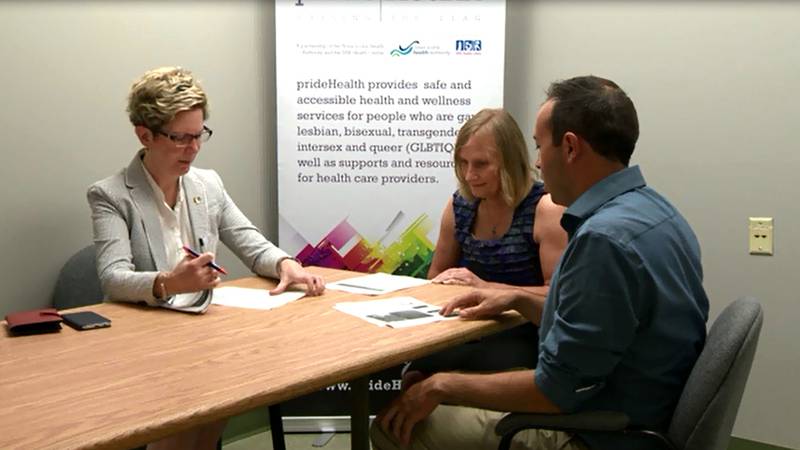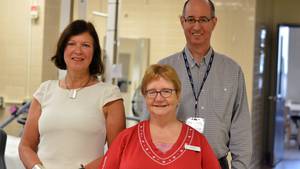Timely access to health care is particularly critical at the moment an individual experiencing gender dysphoria reaches out to healthcare providers. A study funded by the QEII Foundation aims to better understand access to care and navigating through the healthcare system.
From personal relationships, work and family life, to pain and uncertainty about what the future holds, are all items that can be further exacerbated with every obstacle or delay in accessing care, according to Kate Shewan, a patient representative with this research initiative.
“The time when you first reach out for care is a time when you’re really under a lot of stress, suffering from distress and you’re going through a lot of uncertainty,” Kate says. “You may be uncertain how your family and social network are going to react to your transition ... and there’s a lot of uncertainty about employment, so your whole life is up in the air and it’s the worst possible time to be suffering delays and unable to access care.”
Canadian research shows the rates of self-harm, vulnerability and suicide are disproportionately high among the trans community and especially so for those waiting to access medical transition services.
Dr. Jacquie Gahagan, professor of health promotion at Dalhousie University’s School of Health and Human Performance, leads the study with partners from the Nova Scotia Health Authority. Funded through a QEII Foundation Translating Research Into Care (TRIC) grant, Dr. Gahagan and her team will survey both community members and healthcare providers in order to better understand the barriers to accessing timely healthcare.
Established in 2013, QEII Foundation TRIC grants are awarded to researchers and administrators working to improve patient outcomes, reduce wait times and improve the safety of health care.
Kolten MacDonell, a Health Services Manager with prideHealth, says each individual’s needs and experiences are unique.
“We understand that the individual who is transitioning determines how they’re going to transition and whether they plan to pursue a combination of hormone therapy, speech therapy, gender reassignment surgery and other ways of transitioning.
“From a prideHealth perspective, this is really important research for having a holistic understanding of challenges and the overall experience from all perspectives,” Kolten says.
“Our goal is to have an in-depth understanding and strong knowledge base that will form our work going forward to improve access to care.”
A deeper understanding at every level will help healthcare providers address the needs of patients who are accessing health care related to transitioning, Dr. Gahagan adds. Kate hopes the research also builds public awareness both inside and outside the trans and gender diverse communities.
Kate was able to pursue a portion of the assessment services privately, which cut down on the transition period, but this is not an option for many trans people. She still experienced a nine-month holding pattern while waiting to see an endocrinologist, and wait times have increased from that in recent years. She wonders if basic tests for relatively healthy patients could be performed by a trained general practitioner and Dr. Gahagan agrees. All options are on the table.
This research seeks to support aligning health services with the standards of care developed by the World Professional Association of Transgender Health, and to tailor the QEII’s services to better meet the needs of the local population.
“The strength of this is really looking at it from the perspective of what’s happening in this province and this research is an opportunity to revisit why we do what we do around primary health,” Dr. Gahagan says.
“It’s exciting because the study is Nova Scotia-based and the lessons learned will have a Nova Scotia context and impact.”








